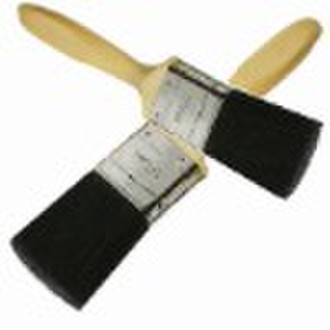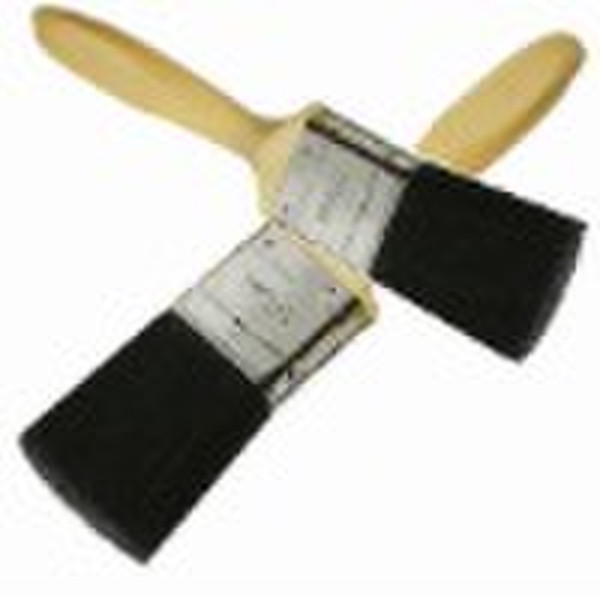Catalog
-
Catalog
- Agriculture
- Apparel
- Automobiles & Motorcycles
- Beauty & Personal Care
- Business Services
- Chemicals
- Construction & Real Estate
- Consumer Electronics
- Electrical Equipment & Supplies
- Electronic Components & Supplies
- Energy
- Environment
- Excess Inventory
- Fashion Accessories
- Food & Beverage
- Furniture
- Gifts & Crafts
- Hardware
- Health & Medical
- Home & Garden
- Home Appliances
- Lights & Lighting
- Luggage, Bags & Cases
- Machinery, Hardware & Tools
- Measurement & Analysis Instruments
- Mechanical Parts & Fabrication Services
- Minerals & Metallurgy
- Office & School Supplies
- Packaging & Printing
- Rubber & Plastics
- Security & Protection
- Service Equipment
- Shoes & Accessories
- Sports & Entertainment
- Telecommunications
- Textiles & Leather Products
- Timepieces, Jewelry, Eyewear
- Tools
- Toys & Hobbies
- Transportation
Filters
Search
pure double time boiled bristle paint brushes
original price: 0,30 USD
Taixing, China

Emily Jiang
Contact person
Basic Information
| Place of Origin | Jiangsu China (Mainland) |
|---|---|
| Brand Name | HJ |
| Model Number | HJPBR6403# |
| Type | Paint Brush |
| Brush Material | Bristle |
| Function | Other |
Detailed Product Description Technical Details: 1. This product is highly recommended for both interior and exterior painting projects 2. Strong and durable performance makes them high-performing for working in hot and humid climates. Fit for outside projects with different temperatures and humidity. 3. This superior brush has been finely handcrafted from pure Chinese bristle, its quality are superior to the brush made from synthetic filaments. Range of Application: Widely used in Industries including shipbuilding, auto car, flying Machine, furniture and office or home painting project Product description:(R64# paint brush)1.Double time boiled white or black bristle 90% tops, the bristle are very straight. and surface is very smooth and straight2. Stainless steel ferrule with three lines, two lines on top of ferrule, one line at the other side, press word in the middle of ferrule.3.Hard wooden handle:(birch wooden; grass tree wooden )arbitrary hue lacquer,arbitrary hue lacquer tip4. Nail stainless steel ferrule to the brush head5. Heavy epoxy glues with its excellent quality make the bristle not shed or pull out6. Normal Packing:High quality PVC hang bag on the brush head.SIZELENGTHOUT BRISTLEWIGTHTHICKNESSHEIGHT FERRULEPACKAGEPCS CTNSIZE CTNN.WG.W1"56mm25mm19mm36mmpe bag60059*48*34.533kg34kg1.5"63mm38mm19mm36mmpe bag30065.5*29*34.523kg24kg2"70mm50mm19mm36mmpe bag19254*35*2818kg19kg2.5"76mm63mm22mm44mmpe bag14459*34*29.523kg24kg3"83mm75mm22mm44mmpe bag14460*40*29.524kg25kg4"89mm100mm24mm44mmpe bag9663*36*3619kg20kg How to clean paint brush Your brushes are an investment. By cleaning them thoroughly and properly at the end of a painting session, they will last longer. Difficulty: Easy Time Required: Time worth spending Here's How: 1. Wipe off any excess paint using a cloth or soft tissue. Gently squeezing the bristles from the ferrule edge outwards with your fingers, or with a cloth, will help remove paint from the brush. But be careful to avoid pulling on the bristles. 2. Rinse the brush in turpentine or oil if you've been using oils or lukewarm water if you've been using a water-based medium. Never use hot water as it can expand the ferrule, causing the hairs to fall out. 3. Wipe it on the cloth again to remove the last of the excess paint. 4. Wash gently using a little bit of mild soap (rather than dishwashing liquid). Dab the brush gently onto the piece of soap, then work up a lather in a small container (or the palm of your hand if you're not using any toxic pigments or solvents). 5. Rinse and repeat until there's no trace of any color coming out. Over time a brush may become stained, but don't stop rinsing until you're sure there's no paint left. 6. Rinse once more in clean, lukewarm water to remove any traces of soap. Shake off the water. 7. Use your fingers to gently shape the brush head into its correct shape. 8. If necessary, wrap the bristles in a piece of tissue or toilet paper while the brush is still wet. When the paper dries it'll contract, pulling the bristles into shape. 9. Leave brush to dry at room temperature. Ensure it's not resting on its head as it will then dry misshapen. Standing it on the back of the handle works well. 10. If you're worried about the toxicity of the paint you're working with, wear gloves while painting and cleaning your brushes. Also if you find the paint is drying out and cracking, or staining your skin. Tips: 1. Always use separate brushes for oil painting and water-based medium. After all, oil repels water. Also use separate brushes for varnish, gesso, and masking fluid. 2. Don't let acrylic paint dry on a brush as its water-resistant when dry. But also never leave a brush standing in water. 3. Never use a lot of pressure to force paint out of a brush. Be patient and rinse it several times. 4. If your brush is made from natural bristle, you can soften it by dipping it in clean oil (the one you use as a medium) after you have cleaned it. 5. Misshapen synthetic brushes can sometimes be reshaped by soaking them in hot water (not boiling).
Delivery terms and packaging
Packaging Detail: pvc hang bag&ctns Delivery Detail: 35days
Port: shanghai
Payment term
Letter of credit
Telegraphic transfer
-
Payment Methods
We accept:









